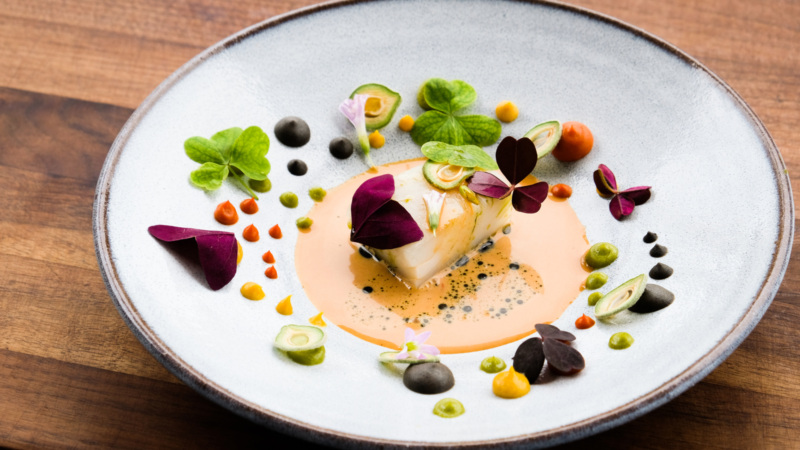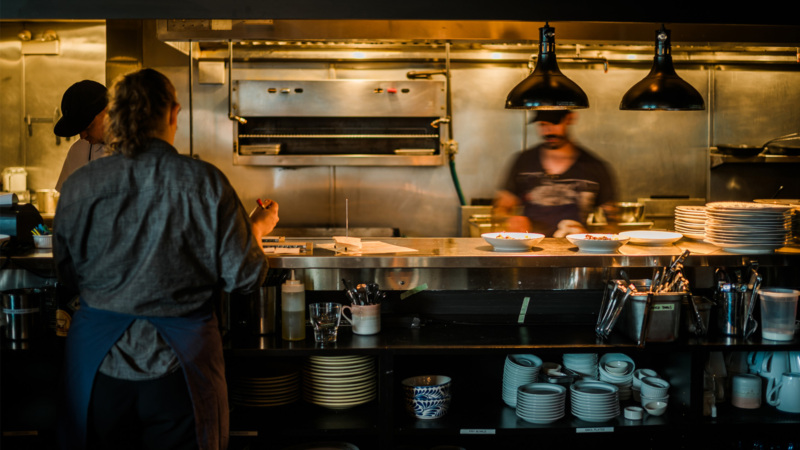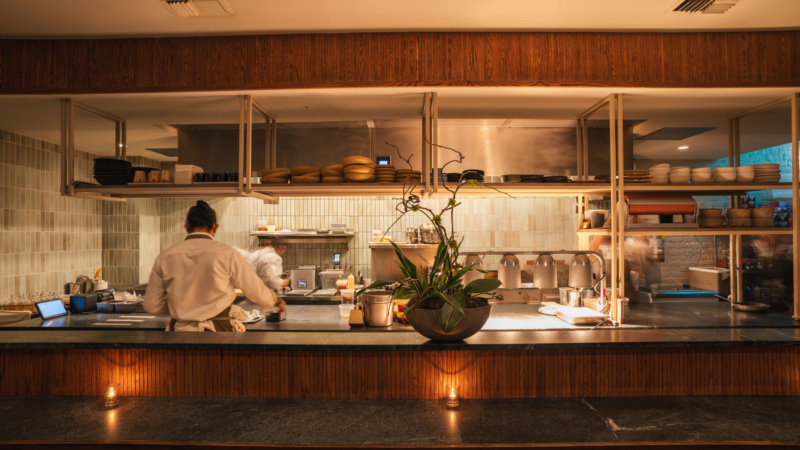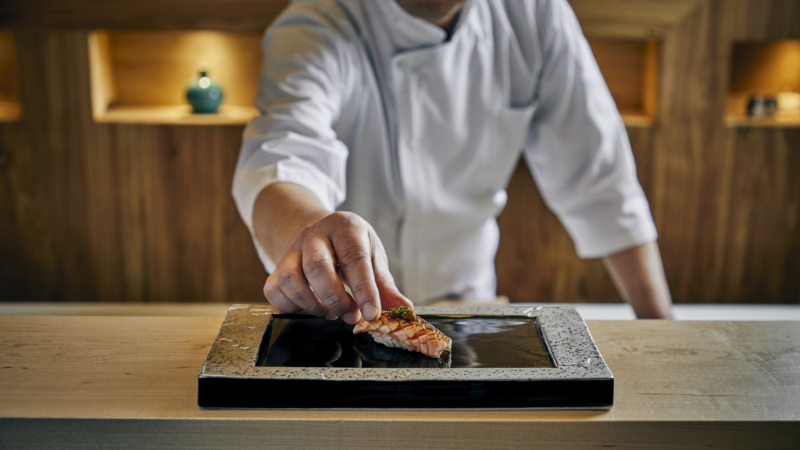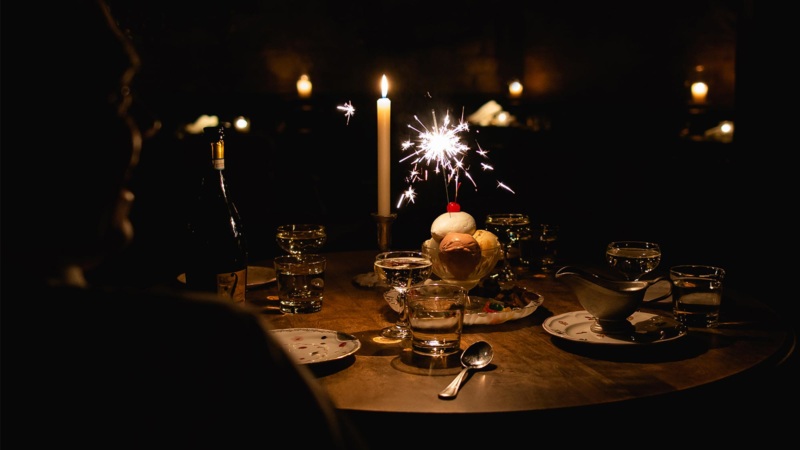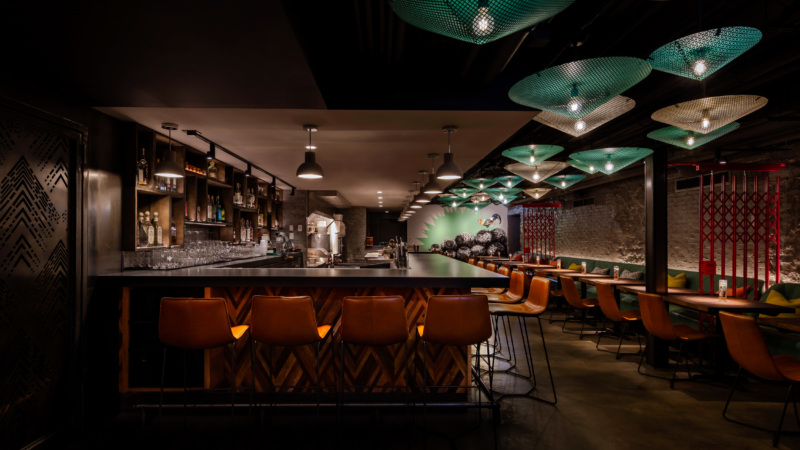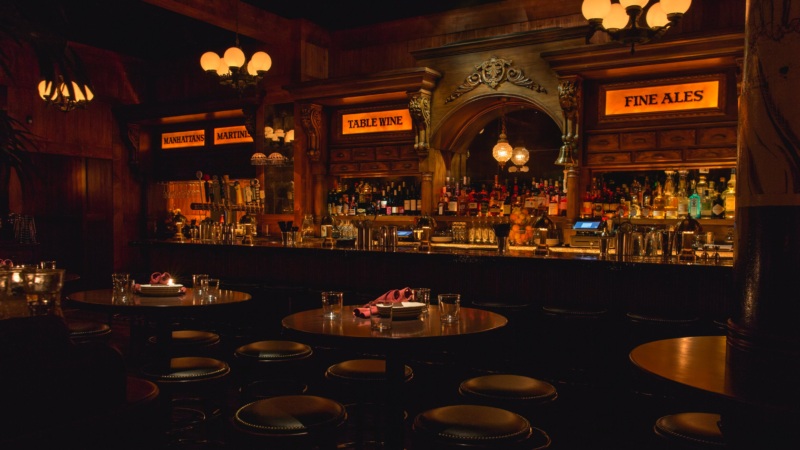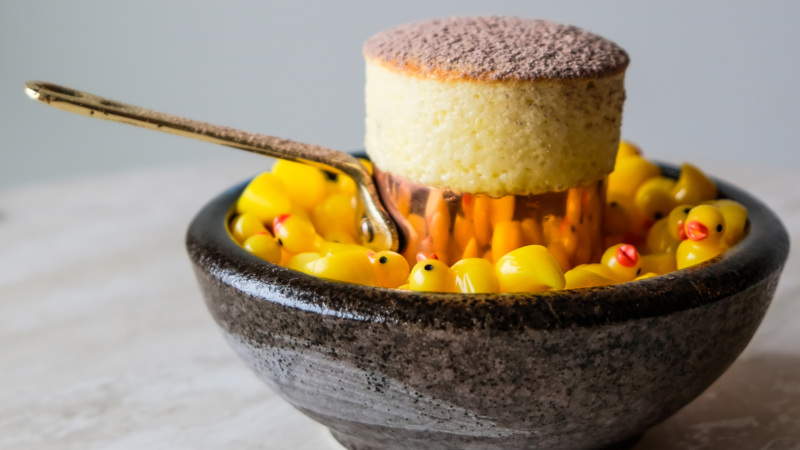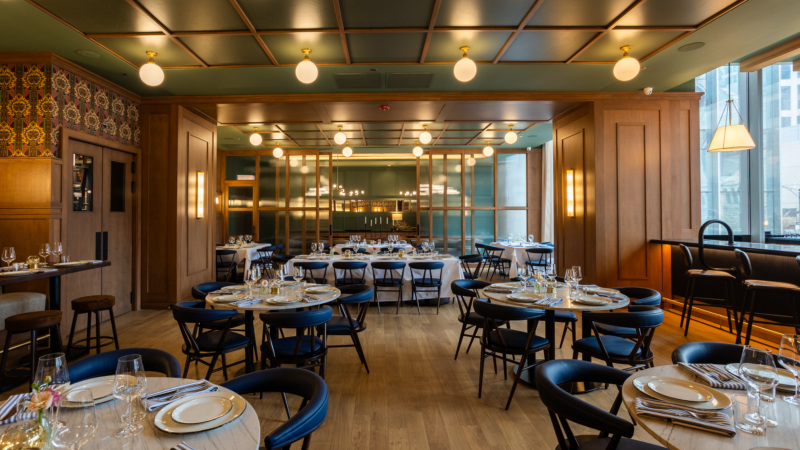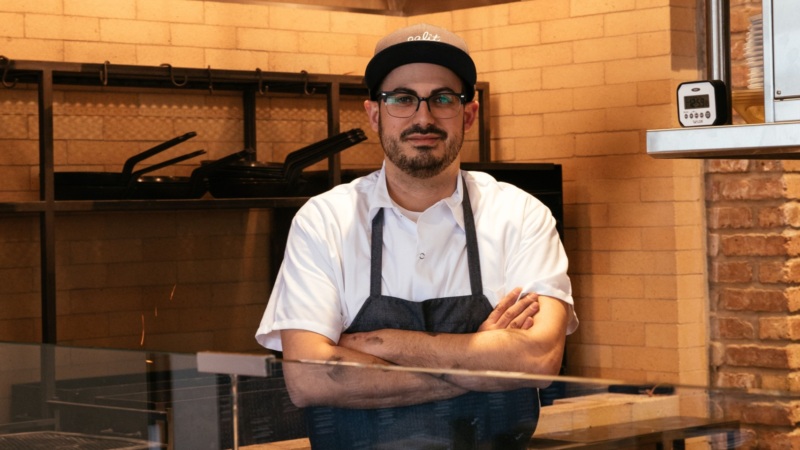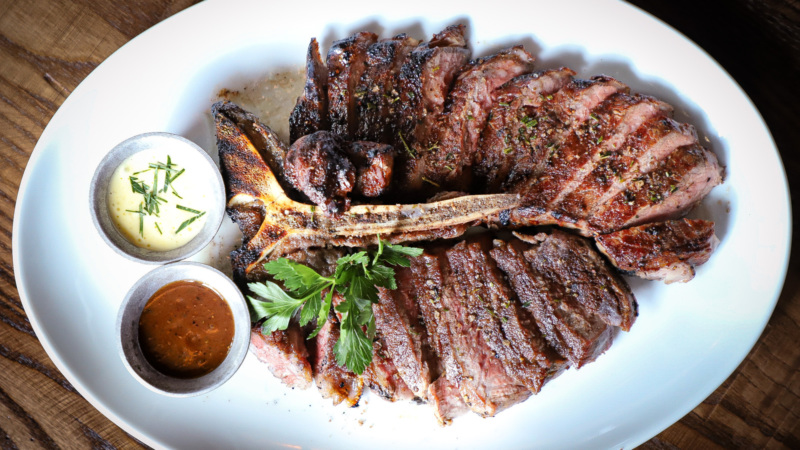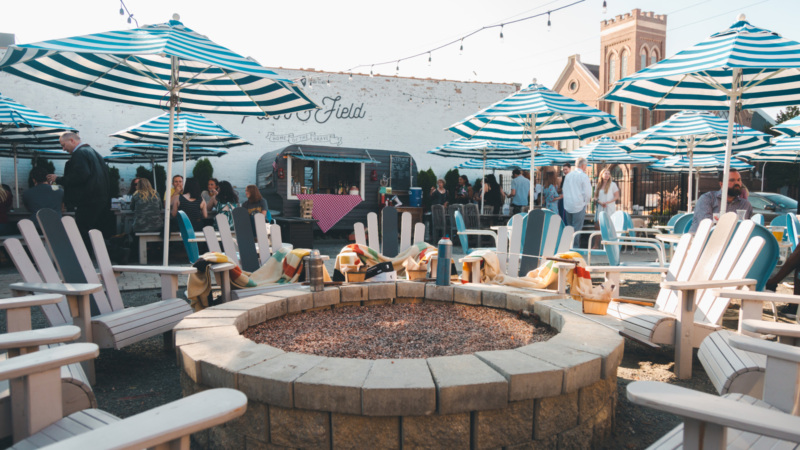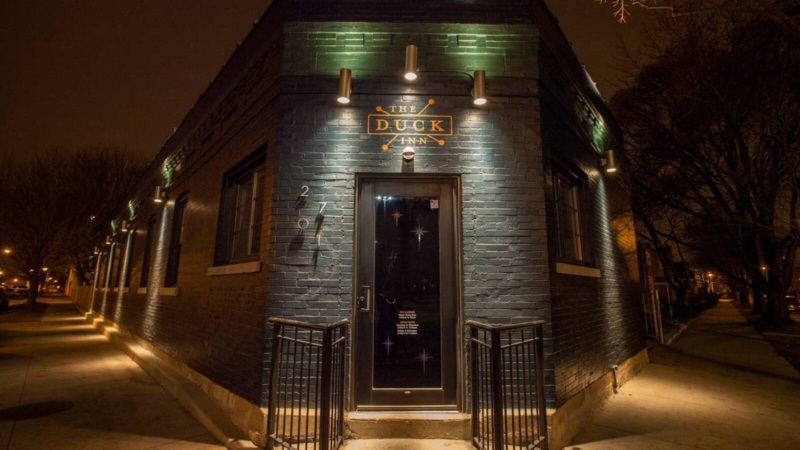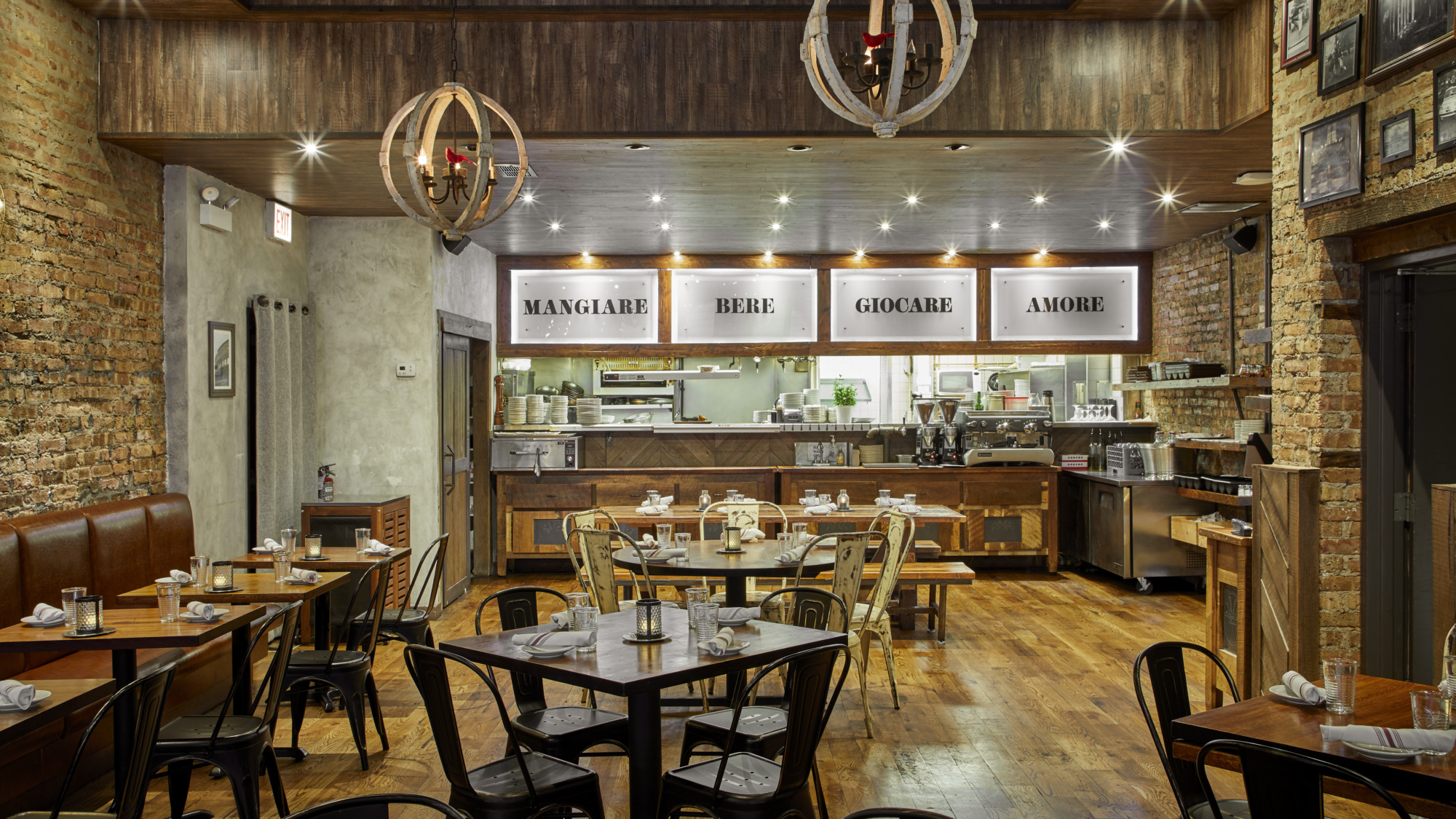
Bar Roma’s Julia Zhu Opened Her First Restaurant at 60. And She’s Just Getting Started
Sometimes while pursuing one dream, other dreams emerge, creating a circuitous road to success that you never saw coming. That was the case for immigrant-turned-news-anchor-turned-banker-turned restaurateur Julia Zhu, whose path to opening Bar Roma in Andersonville was far from linear.
A Shanghai native, Zhu moved to Chicago in 1983 as a student with two suitcases and 50 dollars in her pocket, the maximum amount the country allowed for exchange at the time. Like many students, Zhu needed part-time work to put herself through school, and quickly got a job as a waitress at a Dee’s, the long-running upscale Chinese restaurant in Lincoln Park.
“Restaurants rooted me in Chicago and really helped me throughout my studies,” she says. “All those years, I was able to practice my English and met a lot of people and made great connections. I always got the highest tips.” The seeds of future restaurant ownership were planted during this time, but would take decades to come to fruition.
In the intervening years, Zhu married and started a family, worked as a news anchor for a Chinese American television station, and pursued a dream of becoming a documentary filmmaker. Her career took yet another twist post-divorce, which led to an unexpected 18-year stint with Citibank. When she retired as a banker, the idea of returning to the restaurant world reemerged.
Zhu had developed a business acumen that made her especially suited for entrepreneurship. Together with her then-boyfriend, Howard Davis, and chef Alfred Ramos, she settled on an Italian restaurant — a cuisine she considered “recession-proof.” Bar Roma opened in 2016, and since, Zhu has continued to cultivate an inviting space where all are welcome.
As if being part owner of Bar Roma doesn’t keep her busy enough, she talks of one day becoming a writer and picking up the piano again. Now, at age 66, Zhu hasn’t stopped wanting more out of life. “I still want to do things,” she says. We sat down with the ever-energetic Zhu to talk about her experience in the industry as an immigrant and as a woman, and the challenges she has faced alongside her success.
This interview has been edited for length and clarity.
- The Resy Guide to the Women-Owned Restaurants of Chicago
- The First Michelin Star for a Filipino Restaurant? This Couple Made It Happen.
- How To Nab a Seat at Monteverde, and What To Order Once You’re In
- Bar Goa’s Twists on Indian Coastal Cuisine, In Five Dishes
- How Lula Cafe Has Kept Its Cool in Logan Square for 24 Years
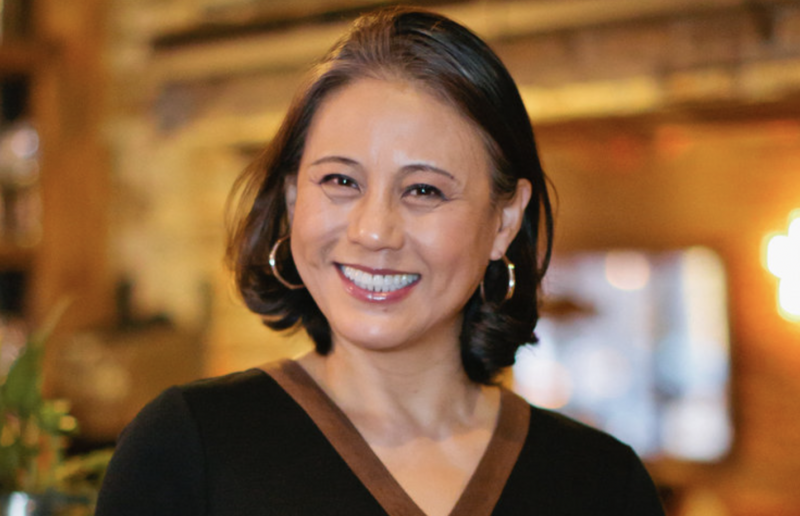

Resy: Can you talk a little bit about the other jobs you’ve had and the winding road that got you to opening Bar Roma?
Julia Zhu: I first studied English at Harold Washington while I was waiting tables. Then I became an anchor for Mid-American Chinese TV while I worked on getting my degree in television production from Columbia College Chicago. When I married my ex-husband and we had a child, he wanted me to be a housewife. But what I really wanted was to pursue my own career. So that was a pivot point. We got divorced and the TV station closed.
Eventually, I got recruited by Citibank through a friend. I told them that I would interview but I knew that being a banker was not my dream. At the time I was a single mother, going through a divorce, and I was in school — I couldn’t work a nine-to-five because I had to pick up my daughter from school. So, they told me that I could have flexible hours and even offered to pay my tuition. They really believed in me as a salesperson. I tried it for three months and ended up staying for 18 years.
What was your motivation to open an Italian concept?
Well, I thought once I retired from Citibank, I would need to do something. I was still kind of young and my dream had always been to eventually open a restaurant. There was a food critic from the Chicago Tribune, and his first question was, “Why would you, as a Chinese woman, want to open an Italian restaurant?” I told him that Chinese people always believed we invented pasta, and that Italian seemed like the most economically sustainable type of restaurant in the industry.
When I retired from Citibank, in 2016, I was 60 years old … And even though I didn’t have training in the restaurant industry, I was able to learn. So, I opened Bar Roma when I was 60. Regardless of your age, if you have the determination, you can do it.— Julia Zhu, Bar Roma
Our current chef, Alfred Ramos, used to be the executive chef for Gioco, which is closed now, but was an old Italian restaurant in the South Loop. Howard, my boyfriend at the time, called him and said, “Julia and I are opening a new restaurant. We’d like to see if you’d be interested in joining us.” And then we also had a silent partner.
Howard knew that meatballs were very popular in New York. So, the four of us went to New York for a week, and went to every single place with meatballs. We decided that our restaurant’s concept would be meatballs and Italian food — but to make it more focused, we concentrated on one region. Just like if it were Cantonese Chinese cuisine, we decided on Roman Italian cuisine.
We found a space and were able to get a loan for it. And when we opened, it was an instant success. I remember having a soft opening on a freezing snowy night and we had 76 covers — all walk-ins. At first, I was a little hesitant as a Chinese woman opening an Italian restaurant. I wasn’t sure if the neighborhood would welcome me, but they embraced my business.
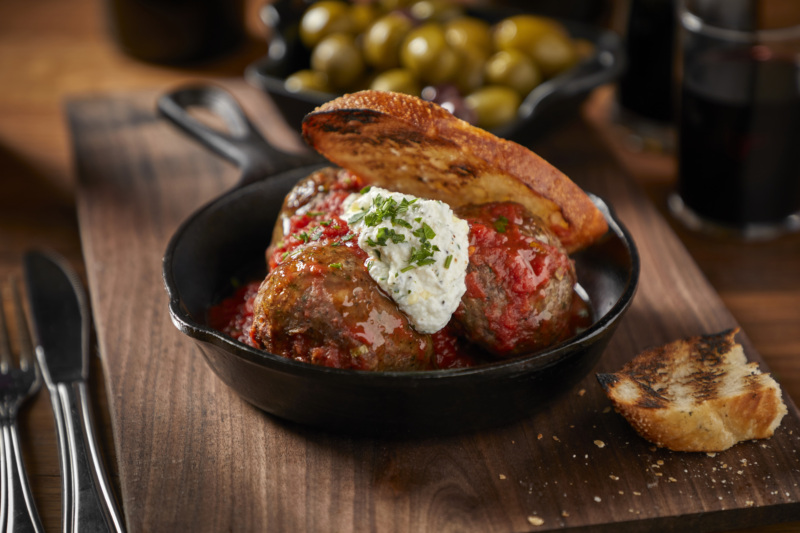

Have you ever added any items to the menu inspired by your heritage?
In Shanghai, where I grew up, there’s a pork meatball called Lion’s Head. So I told the chef, maybe we could cook Lion’s Head meatballs. He did try to merge those flavors and it didn’t quite work. But the pork meatball we have on the menu does have some fusion with Chinese flavors like ginger.
Did you face any challenges as a female owner coming from outside of the industry?
I’m a woman, yes, but I’m also a minority. I didn’t know much about Italian food and how to train employees. I had to learn everything. I knew I could never be an expert like the chef because I hadn’t gone to culinary school. But I am the front person and what I can guarantee is service. I tell my servers during training that 50% of what is delivered to the customers is from the kitchen, and the other 50% is about the experience. I want people to have a warm feeling when they come into the restaurant.
When I worked in the bank, I didn’t believe in myself to do well, but I did. I ended up going to the University of Chicago Business School. So at the beginning of opening the restaurant, even though there were a lot of rules according to the industry standard, I learned them. I was very humble.
What about gender as an opportunity?
I think women sometimes can have a softer touch. I am concerned about people and their families. I try to make my employees feel like this is a big family, and if they have problems, to not hesitate to talk to me. One employee left to try and work at a downtown Michelin star restaurant, and after training, he asked to come back here. Working here is different — everybody feels connected.
Do you think sexism is shaping the broader restaurant industry, and how so?
Personally, I’m not trying to catch up to men in the industry. I just do what I am good at. And when you have different components inside a restaurant, each partner brings something to the table. If you find a good combination, your business will be successful. Not one person can do everything and I love that. I love watching the finance side. Anything anyone wants to propose or develop, I run the numbers. That is my expertise.
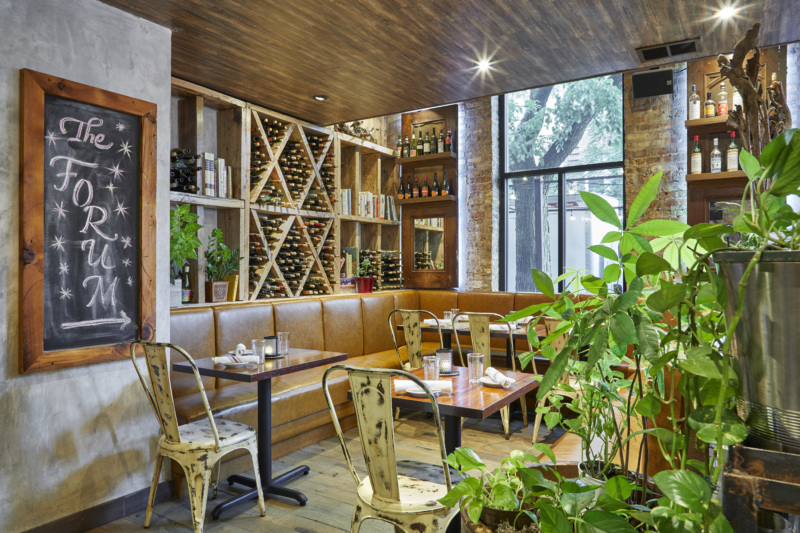

Is there anyone in particular who has inspired you?
When I was working as a student, Dee Kang, who owned Dee’s Restaurant, inspired me. She only had a high school education and was successful. She was a hard working woman and she made it. The other one is Bobby Chinn who opened Bobby Chinn’s Crab House. When I was on television, I interviewed him, and he told me that he had opened so many restaurants, and all of them failed until he reached 60 years old and opened Bobby Chin’s Crab House. He told me to not be afraid of my age and that he had failed so many times before hitting the jackpot.
When I retired from Citibank in 2016, I was 60 years old. I thought, if he can do that, I can do that, too. And even though I didn’t have training in the restaurant industry, I was able to learn. So, I opened Bar Roma when I was 60. Regardless of your age, if you have the determination, you can do it.
Are there any changes you have seen in the industry in Chicago?
In Andersonville, I do see more women opening restaurants. As a woman, I know it’s challenging. In my opinion, women make great managers because they are really focused on the details.
My advice is try not to be discouraged … Don’t give up. Resilience, resilience.— Julia Zhu, Bar Roma
What was the pandemic like for all of you at Bar Roma?
It was really, really hard. We had to shut down the restaurant. I had to lay off all the front-of-house people and the majority of the kitchen. At one point, I had to let everybody go. It was just me and the chef. But I was lucky because I had put money aside for a rainy day. I think I did this because of my training working at the bank. I had at least two months’ rent and all expenses. But I was also grateful for government support and relief funds. The one good thing that came out of this pandemic was that our online delivery went up over 10 percent.
What advice do you have for those coming into the industry who might feel marginalized by their gender or background?
My advice is try not to be discouraged. With everything you do in business, there will always be a risk. But if you think you can manage that risk, then go ahead and don’t hesitate. Take it. Also, keep learning. Don’t give up. Resilience, resilience.
What would you say to your younger self?
I would say keep going.
Butter or olive oil?
Oil. I’m Chinese! I don’t eat a lot of butter. Olive oil is good for your physical existence.
Elanor Bock is a Chicago-born professional writer, dancer, and Renaissance woman. Follow her on Instagram. Follow Resy, too.


